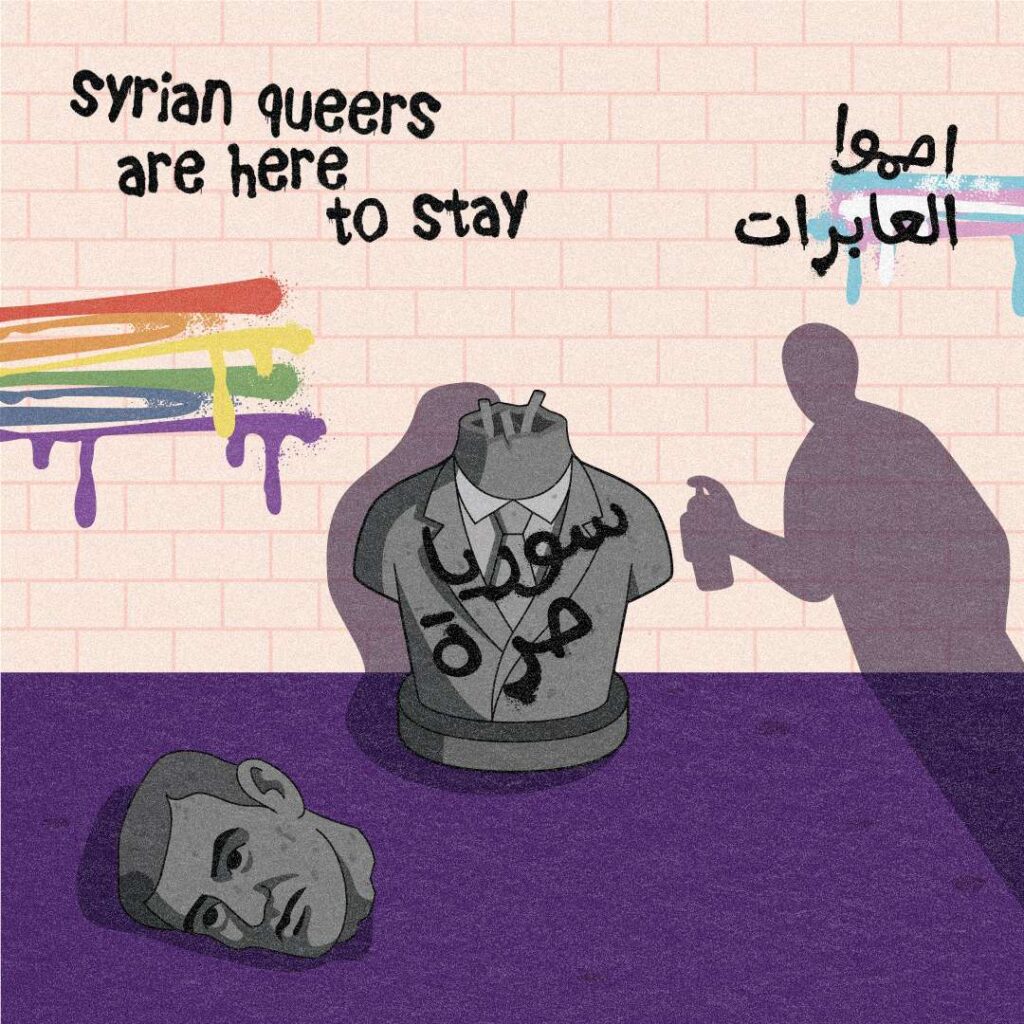Executive Summary:
The challenges faced by LGBTQIA+ individuals in Syria surpass those encountered by this community in other countries. Wars and conflicts have led to increased violence, repressive legislation, and social stigma. Therefore, empowerment projects play a vital role in supporting these individuals by aiming to improve their financial, professional, and educational status, enhance psychological and social support, provide legal protection, build capacities, and contribute to changing the negative societal perception. Additionally, these projects help in establishing support and advocacy networks.
Since the onset of military developments in northwest Syria at the end of November 2024, violence against LGBTQIA+ individuals has escalated significantly. During this time, requests submitted to the Guardians of Equality Movement organization surged, prompting an emergency response that included providing urgent services. The organization also mobilized efforts through a network of GEM members on the ground and various sources within Syria to counter a wave of false and misleading news about the LGBTQIA+ community. Additionally, it verified the authenticity of images depicting the arrest of LGBTQIA+ individuals on December 31, 2024.
The organization also directed its media efforts toward promoting a culture of security and safety in alignment with the evolving situation. Simultaneously, it engaged with the management of several applications used by LGBTQIA+ individuals in Syria to enhance security and protection measures.
These efforts came at a time when the first two months of 2025 saw waves of violence against several Syrian transgender women in multiple cities. Videos surfaced showing armed individuals arresting, beating, and threatening them with death and mutilation. The organization made it a priority to highlight these acts of violence.
In the context of advocacy, the Guardians of Equality Movement incorporates security considerations and the sensitivities and complexities of LGBTQIA+ issues in Syria into its strategy for developing and implementing long-term empowerment and advocacy plans.
However, the humanitarian response faces significant challenges in achieving its goals. This paper outlines the key needs and priorities of LGBTQIA+ individuals, as well as the challenges faced by organizations dedicated to supporting sexual and gender minorities.
The paper highlights key findings from an extensive World Bank study that establishes a strong link between a country’s economic prosperity and the inclusion of LGBTQIA+ individuals in society. It also presents conclusions from a comprehensive study on the limited funding allocated to support gender and sexual diversity issues in the Middle East.
To read the full report, please refer to the file below.

